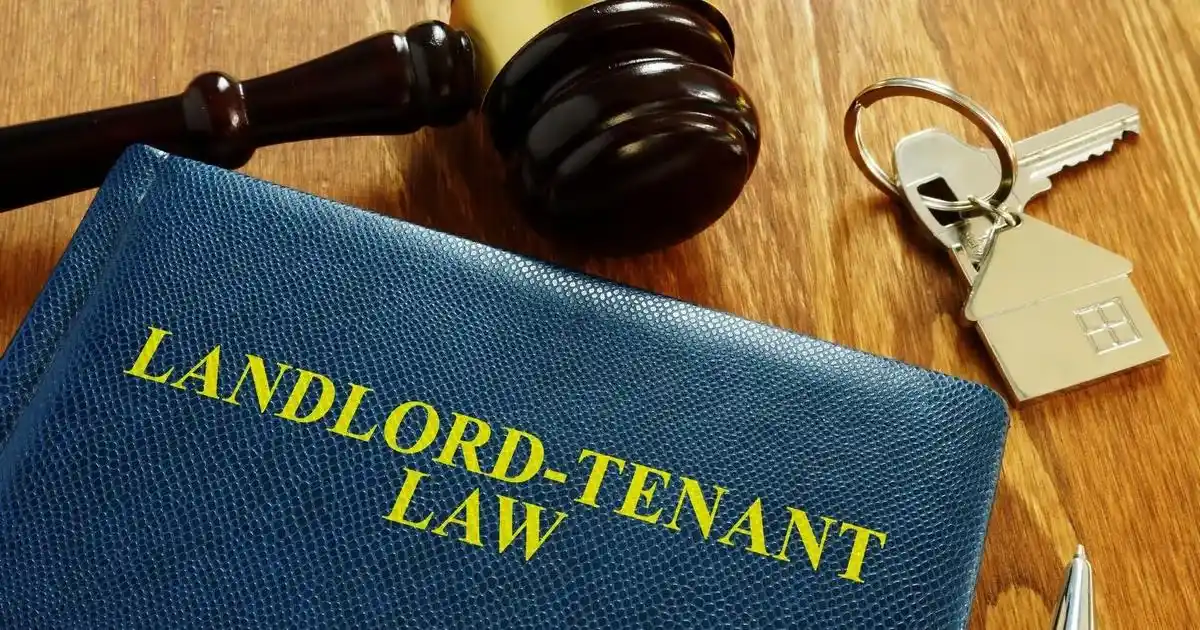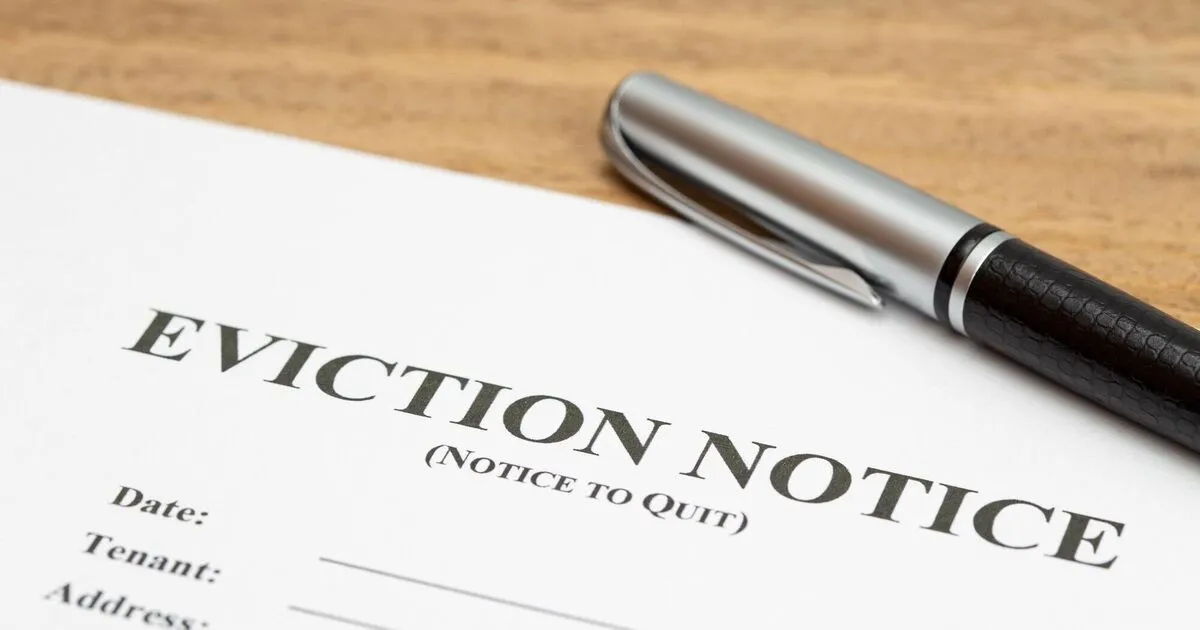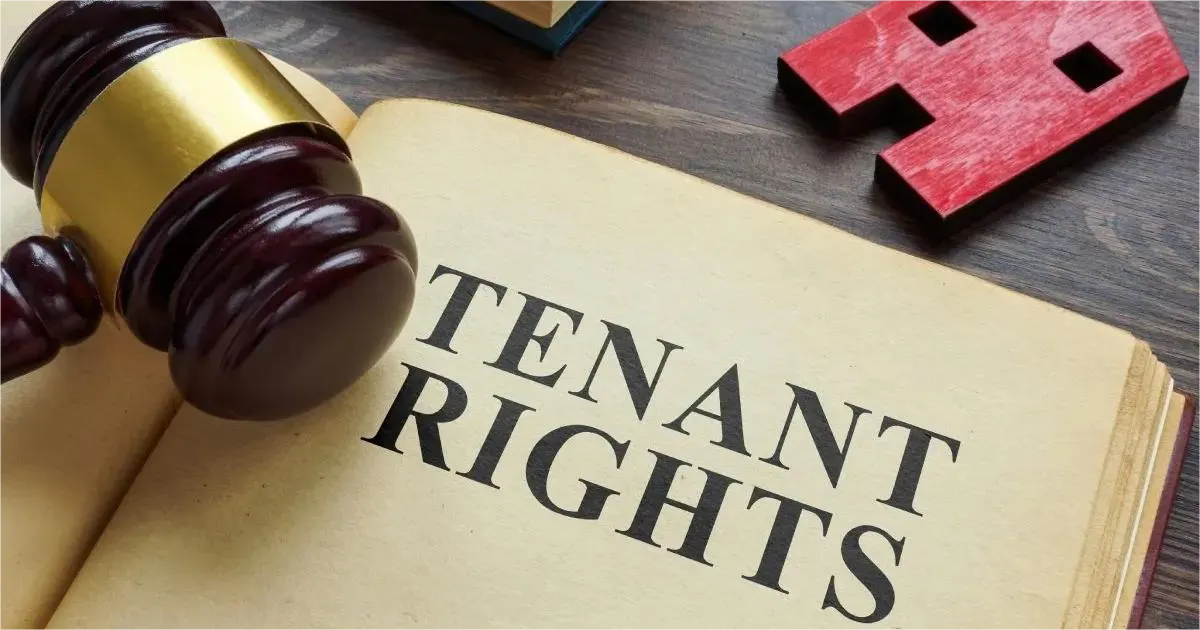Eviction is one of the most stressful aspects of renting for both landlords and tenants. While landlords have the right to reclaim their property under certain conditions, tenants are also protected by legal rights. So, can landlord evict tenant because he want to? Let’s dive into the details.
Understanding Landlord and Tenant Eviction Law in Dubai

Tenancy laws vary by location, but generally, landlords must follow legal procedures when evicting a tenant. This includes providing proper notice, filing paperwork if necessary, and ensuring the tenant’s rights are not violated.
Dubai has a well-defined rental law that protects both parties. So,Understanding eviction laws in Dubai is crucial for both landlords and tenants to avoid legal disputes and ensure a smooth rental experience.
The Real Estate Regulatory Authority (RERA), under Law No. 26 of 2007 and its amendments (Law No. 33 of 2008), governs the rental process. Landlords cannot simply ask tenants to vacate without a valid legal reason.So, when and how can landlord evict tenant? Let’s dive into the details.
Can Landlord Evict Tenant in UAE?
Yes, a landlord can evict a tenant in UAE, but only under specific legal circumstances. A landlord cannot force a tenant to vacate without following the legal eviction process. Evictions can be broadly classified into two types:
- Eviction during the contract period (only under certain legal grounds).
- Eviction after the lease expires (if proper notice is given).
Let’s explore both in detail.

Valid Reasons for Eviction During the Contract Period
During an active lease, landlords cannot terminate a contract unless there’s a strong legal reason. These include:
Non-Payment of Rent
If a tenant fails to pay rent within 30 days after receiving a written notice, the landlord can issue an eviction notice.Most states require landlords to give a formal notice before filing for eviction.
Illegal Activities on the Property
If the tenant is using the property for illegal or immoral purposes.
Unauthorized subletting: If the tenant sublets the unit without the landlord’s written consent.
Engaging in criminal activities like drug production or illegal subletting can lead to immediate eviction.
Property Damage
If the tenant causes significant damage to the property. Serious property damage beyond normal wear and tear can justify eviction, especially if the tenant refuses to pay for repairs.
Lease Violations & Breach of contract
If a tenant breaks lease terms—such as keeping unauthorized pets, subletting without permission, or exceeding occupancy limits—the landlord may pursue eviction.
In all these cases, the landlord must first send a legal notice before proceeding with eviction.
Also Read : Complete Guide For Breaking Tenancy Contract In Dubai 2025
Reasons for Eviction After the Contract Ends
Once a lease ends, a landlord can refuse to renew it, but only under specific conditions:
- If the landlord wants to sell the property.
- If the property requires major renovation that makes it unlivable.
- If the landlord wants to use the property for personal use (or for their immediate family).
- If the property will be demolished for new construction.
For all these cases, a 12-month written notice must be given to the tenant via notary public or registered mail.
The Eviction Process: Step-by-Step Guide
Evicting a tenant requires landlords to follow a strict legal process. If a landlord has a valid reason, here’s how they can proceed with eviction:

1. Provide Written Notice
Landlords must issue a written eviction notice through registered mail or notary public, specifying the reason and notice period.(30 days or 12 months) depending on the reason for eviction.
2. File a Case with RDC
File a complaint with the Rental Dispute Center (RDC). if the tenant refuses to vacate. The landlord can file an eviction lawsuit (unlawful detainer) in court.
3. Attend Mediation Sessions
The RDC will schedule mediation sessions to resolve the dispute amicably. Attend the hearing where both parties present their case.
4. Obtain a Court Order
If mediation fails, the case proceeds to court, where a judge will issue a ruling.The tenant has the right to contest the eviction in court, where a judge will determine the outcome.
5. Enforcement of the Eviction Order
Once the court rules in favor of the landlord, law enforcement can enforce the eviction.
If the court rules in favor of the landlord, the tenant is given a deadline to leave. If they refuse, law enforcement may intervene.
It’s important to follow this process carefully to avoid unnecessary delays.
Notice Period and Legal Requirements
Eviction notices must follow strict legal guidelines:
- For contract violations: A 30-day written notice is mandatory.
- For property sale, renovation, or personal use: A 12-month notice must be given.
- Notices must be delivered via notary public or registered mail for legal validity.
If the notice does not follow legal requirements, it may be challenged by the tenant in court.
Tenant Rights During Eviction
Tenants are protected by law and have specific rights, including:

1-Right to Proper Notice Requirements
Landlords must follow state laws regarding notice periods before taking legal action and provide tenants with adequate notice before eviction.
2-Protection from Retaliatory Eviction and Discrimination Protections
Landlords cannot evict tenants for reporting violations or exercising their legal rights. Evictions based on discrimination (e.g., race, disability) or retaliation (e.g., after reporting health violations) are illegal.
3-Right to Legal Defense
Tenants can present defenses in court, such as proving rent was paid or lease violations were false.
4-Right to a Fair Hearing
Tenants can present their case before the RDC or court.
How Tenants Can Avoid Eviction in Dubai
Tenants can take proactive steps to avoid eviction:

1. Pay Rent on Time
Ensure rent is paid promptly to avoid disputes.
2. Comply with Lease Terms
Adhere to the terms of the lease agreement and Follow contract terms carefully.
3. Communicate with the Landlord
Communicate with the landlord if issues arise, Open communication can resolve issues before they escalate.
4. Seek Legal Advice
Consult a lawyer to understand your rights and options.
Conclusion
By following this guide, you can approach tenant eviction matters in Dubai with confidence and clarity. Whether you’re a landlord or tenant, knowledge is your best defense. Understanding the laws and knowing how to handle disputes ensures a fair rental experience for all parties.
For expert legal advice and assistance, Our experienced team of real estate lawyers in dubai is here to help you navigate tenant-landlord disputes and protect your rights. Contact us now!
FAQs About Landlord Evict Tenant in Dubai
1. Can landlord evict tenant without a reason in Dubai?
No, landlords must have a valid reason as per Dubai Rental Law.
2. How long does the eviction process take in Dubai?
The process can take 2-6 months, depending on the case complexity.
3. Can a tenant challenge an eviction notice?
Yes, tenants can challenge the notice through the RDC or court.
4. What happens if a tenant refuses to leave?
The landlord can obtain a court order for eviction, enforced by law enforcement.
5. Can a tenant claim compensation for wrongful eviction?
Yes, tenants can sue for compensation if the eviction is deemed wrongful.
6. Can landlord evict tenant for sell the property
Yes, landlord can evict tenant for sell the property.
7. Can a landlord refuse to renew a rental contract in Dubai?
Yes, but only for legal reasons like property sale or major renovations.
8. How to Settle Eviction Disputes in Dubai?
The best way to handle disputes is through RDSC, which provides a legal platform for tenants and landlords to resolve conflicts fairly.
9. Can a Landlord Increase Rent Instead of Evicting?
Rent increases in Dubai must follow RERA’s rent index and cannot be arbitrary. If a landlord raises the rent unfairly, the tenant can challenge it legally.
10-What to Do if Facing an Unlawful Eviction?
Tenants should document everything, seek legal advice, and, if necessary, file a complaint with local housing authorities.
11-Can a landlord change the locks to evict a tenant?
No, lockouts are illegal in most places and can result in legal consequences for the landlord.
12-Can a tenant sue a landlord for wrongful eviction?
Yes, if a landlord evicts a tenant without following legal procedures, the tenant can sue for damages.



